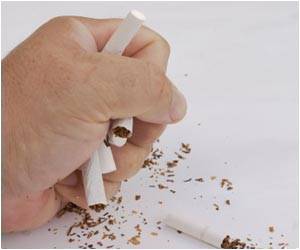
‘As of 2014, five tobacco companies accounted for 85 percent of the global cigarette market. Policies aimed at limiting the market power of tobacco companies are largely untested but hold promise for reducing tobacco use.’
Tweet it Now
"As of 2014, five tobacco companies accounted for 85 percent of the global cigarette market. Policies aimed at limiting the market power of tobacco companies are largely untested but hold promise for reducing tobacco use," said the report 'The Economics of Tobacco and Tobacco Control'. WHO data says that the tobacco industry and the deadly impact of its products cost the world's economies more than $1 trillion annually in health care expenditures and lost productivity.
The report highlighted the issue of high levels of corruption and lack of commitment to addressing illicit trade.
"Many countries having ineffective customs and tax administration, have an equal or greater role in driving tax evasion than do product tax and pricing. The WHO Framework Convention on Tobacco Control (FCTC) Protocol to Eliminate Illicit Trade in Tobacco Products applies tools, like an international tracking and tracing system, to secure the tobacco supply chain," said the report.
The report said that experience from many countries shows illicit trade can be successfully addressed, even when tobacco taxes and prices are raised, resulting in increased tax revenues and reduced tobacco use.
Advertisement
"This report shows how lives can be saved and economies can prosper when governments implement cost-effective, proven measures, like significantly increasing taxes and prices on tobacco products, and banning tobacco marketing and smoking in public," he said.
Advertisement
"Significant tobacco tax and price increases are the most cost-effective of these interventions. Despite the considerable revenues generated by tobacco taxes, few governments are investing more than a fraction of these revenues in tobacco control or in other health programs," said the report.
WHO has estimated that in 2013-2014, global tobacco excise taxes generated nearly $269 billion in government revenues, but governments spent a combined total of less than $1 billion on tobacco control.
The report also said that the market power of tobacco companies has increased in recent years, creating new challenges for tobacco control efforts.
"The global tobacco market has become increasingly concentrated over the past 25 years and is being driven by the same forces that have contributed to globalisation in other industries, including reductions in barriers to trade and foreign direct investment, privatisation of state-owned tobacco enterprises, and a wave of mergers and acquisitions," said the report.
Source-IANS













